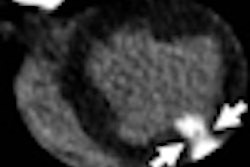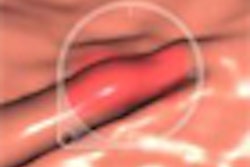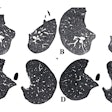Bedside neurological tests were more accurate than head CT in predicting which patients would be readmitted to the operating room, according to a new study in the Journal of Neurosurgery. Scans acquired soon after surgery not only failed to change patient management, they disrupted the radiology department workflow.
"The low-cost, simple, but elegant neurological exam appears to be superior to a routine CT scan in determining return to the operating room," wrote Dr. Ahmad Khaldi, Dr. Thomas Origitano, and colleagues from Loyola University Chicago in the article published online December 18, 2009.
To assess the value of postsurgical CT scans at different time periods, the team reviewed all CT head scans acquired during 2006 after intervention by three different neurosurgeons at the facility. The study analyzed the efficacy of the scans in predicting a return to the operating room. Images were also reviewed for the presence of expected versus unexpected findings and changes in the acuity of these findings over time.
Scans were divided into three groups per the preference of each surgeon:
- Group A (early scans, n = 133) were performed 0-7 hours postsurgery
- Group B (delayed scans, n = 108) were acquired 8-24 hours postsurgery
- Group C (urgent scans, n = 10) were ordered due to a new neurological deficit, defined as slow to wake up (characterized by exceeding calculated anesthetic reversal time), a change in neurological exam, unexpected neurological exam, or prolonged intubation with no confirmed neurological exam
The postoperative head CT scans were categorized for acuity based on the presence of expected or unexpected postoperative findings at CT. The results in 338 patients analyzed for the study showed that group A had an 11% incidence of change of scan acuity on subsequent scan. Group B had a 3% incidence of change in acuity on follow-up scan (p < 0.05).
Routine postoperative scans at 0-7 hours (group A) or at 8-24 hours (group B) were not predictive of return to the OR, the group concluded, while patients with new neurological deficit in the postoperative period (group C) have a 30% chance of emergent reoperation based on CT scans.
Postoperative CT performed too early underpredicts the ultimate changes in the scan findings that may lead to changes in future management, they wrote.
"The simple neurological exam is more effective than routine CT scan in determining a patient's return to the operating room," Khaldi and colleagues concluded. "Delaying the scan at least 8-24 hours will maximize the benefit for both patient and managing physician," they wrote.
Related Reading
MRI in the OR: Impact on pediatric neurosurgical procedures, December 8, 2009
CT perfusion catches stroke cases that CTA misses, April 30, 2009
Copyright © 2009 AuntMinnie.com




















